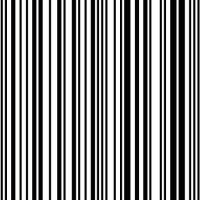Amazon caught a lot of heat over this past holiday season over some improvements to its shopping app. It made it easier than ever to find out that you probably don’t need to buy that blender at Sears, when you can get it for 30% less on Amazon and don’t even have to carry it home. There were cries that small businesses can’t compete with this and would all be dead soon.
There is nothing at Best Buy or Barnes & Noble that you can’t get on Amazon (or many other online stores). It’s rare that it will not be cheaper online, even during a sale (which typically just brings the price down to a normal online price). Is it sustainable to have a store where I can go and hold something, and then order it from somewhere else? No. Should we feel bad for the big box stores? No. Should we feel bad for the shopkeeper who sells a particular niche at a high markup without adding value? No.
Stores that only sell commodity products are a recent innovation to take advantage of a temporary imbalance. They will eventually go the way of dodos, video rental stores, and record labels. We’re still going to have a few, because there are enough “need it now” purchases to sustain the Targets and Wal-Marts, and we’ll probably still have a few high-end ones where excellent service matters like Nordstrom, but most of the stores out there are turning into showrooms.
What if Amazon bought BJs?
(BJs is a consumer warehouse/bulk goods store, like Costco and others). My Prime membership takes the place of my BJs membership. Instead of walking around with a giant shopping cart and driving home with mass quantities of things, I simply browse the aisles for products I like. When I see one, I scan it with my phone, and it’s on my doorstep the next day. There are a few people on staff that might help, and there’s a hotline to specialists that understand the products and can answer my questions. No need for a massive loading-dock infrastructure, or inventory control, or 50′ tall ceilings to heat, or many of the other overhead expenses that yield the current retail markups.
What about the little guy?
I’d like to see our shops go back to actually making things and/or adding value. Custom products, not “regional dealers”. There will definitely be less of them, but this will make more space and lower rents for the people who just want a spot where they can sell their craft, or for people to provide useful services instead of distribution.
